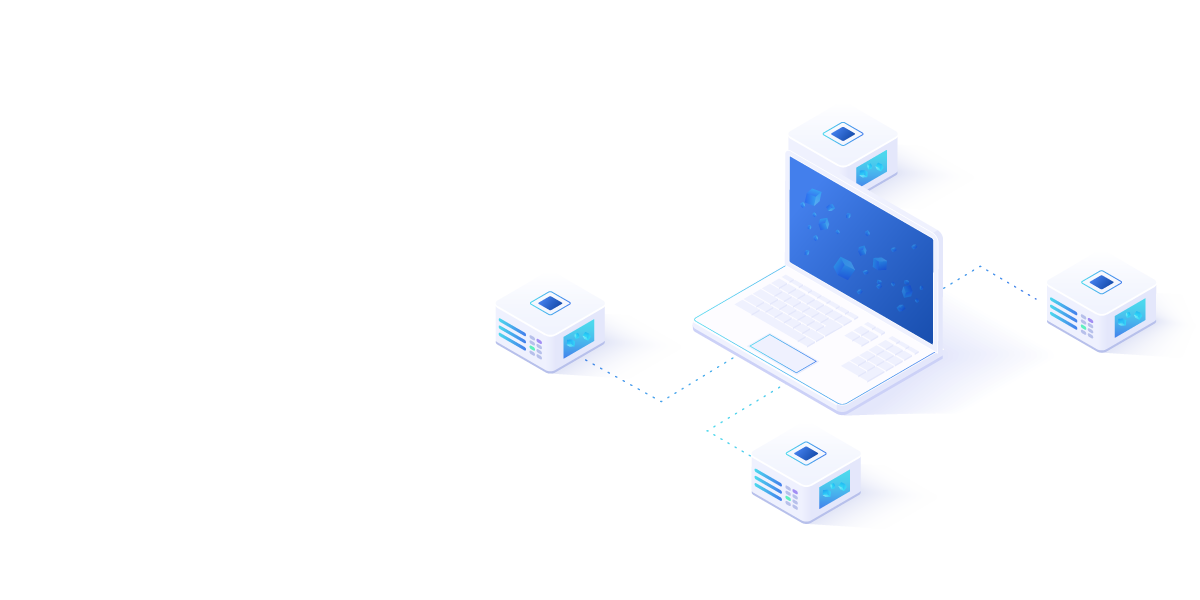EXPERT IT SOLUTIONS
WHY CHOOSE AETEK SOLUTIONS?
IT solutions for today’s business need to be efficient, flexible and scalable to reduce complexity and cost, all while enabling rapid application growth and new technologies. At AETEK, we understand how complicated IT transformations can be.
We have the expertise to design and implement your data center infrastructure using trusted brands and industry-standard procedures. Our solutions are just that – and not just a quick fix.

REAL-WORLD ENTEPRISE IT
Engage with us for a start-to-finish evaluation of your business goals, and how we can provide you the IT solutions to achieve those goals. We offer a number of options to our customers rather than assume everybody needs the same single vendor solution for their very different IT goals.
DATA-DRIVEN EVOLVING TECHNOLOGY
The demand for speed, performance, and cost savings can no longer be supported by legacy network strategies.
We realize that businesses are drowning in data, and we can turn that data into actions that drive business forward. With high-performing systems and storage, that’s cost-effective, efficient, and reliable. By leveraging new technologies, businesses can create better customer experiences, and new revenue streams.

Tomorrow’s Technology, Today.
SAN storage solutions that are highly redundant, modular, and flexible are necessary for a business today. Whether you need Terabytes or Petabytes of storage, we have options for you from the top vendors in the industry. Get access to the most robust, expandable, and easy to manage SAN storage solutions on the market today. We offer SAN solutions for the SMB to Enterprise class customer.
Software Defined Storage (SDS) solutions are SAN storage solutions where the software is no longer proprietary to the hardware. Companies are saving a lot with their IT budgets when they migrate to a storage strategy utilizing SDS, and regaining control over their data through hybridized architectures and cloud storage solutions.
SAN (Storage Area Network) Definition:
A Storage Area Network (SAN) is a computer network which provides access to consolidated, block-level data storage. SANs are used to enhance accessibility of storage devices, such as disk arrays, to servers so that the devices appear to the operating system as locally-attached devices. A SAN normally has its own dedicated network of storage devices not accessible through the Local Area Network (LAN) by other devices, which prevents interference from LAN traffic in network bandwidth saturation.
The cost and complexity of SANs has decreased since the the early 2000s, allowing wider adoption across both enterprise and small to medium-sized business environments.
A SAN does not provide file abstraction, only block-level operations. However, file systems built on top of SANs do provide file-level access, and are known as shared-disk file systems.
(Source: Wikipedia)
NAS (Network Attached Storage) storage solutions are flexible and scale-out easily so that running out of storage is never an issue. NAS is like having a private cloud storage solution in your office, where you benefit from all the speed available from you LAN (Local Area Network). NAS is less expensive, faster, and provides all the benefits of a regular cloud solution on-site, giving you full control over your storage.
NAS storage solutions are so simple to operate that companies do not need to have a dedicated IT person to manage them. NAS storage solutions can also be accessed remotely by employees so that your data is available at anytime from any location. NAS storage solutions are generally less expensive and a lot less complex than SAN storage solutions.
NAS (Network Attached Storage) Definition:
A NAS unit is a storage server connected to a network that provides only file-based data storage services to other devices on the network. Although it is possible to run other software on a NAS unit, it is usually not designed to be a general-purpose server. NAS units usually do not have a keyboard or display, and are controlled and configured over the network, often using a browser.
NAS storage solutions for the SMB to Enterprise space normally have three or more hard disk drives, arranged into logical, redundant storage containers or RAIDs for data protection. NAS units can be as simple as a single HDD storage solution, but those are not recommended for the business sector.
NAS uses file-based protocols such as NFS (popular on UNIX systems), SMB (Server Message Block) (used with MS Windows systems), AFP (used with Apple Macintosh computers), or NCP (used with OES and Novell NetWare). NAS units rarely limit clients to a single protocol, and as such are very flexible storage solutions.
(Source: Wikipedia)
DAS (Direct Attached Storage) is the simplest and least expensive form of computer storage there is. DAS can refer to both storage devices directly connected to a client PC, or storage directly connected to a storage server. With the low cost point of DAS, it’s a great fit for small businesses and enterprise alike, depending on what is trying to be accomplished.
DAS storage solutions require very little IT expertise to implement, but of course are limited in terms of what you can actually accomplish. Other storage solutions we offer will offer a lot greater flexiblity, security, and redundancy.
DAS (Direct Attached Storage) Definition:
DAS is computer storage directly attached to the computer accessing it, instead of storage accessed over a network.
(Source: Wikipedia)
Unified Storage Solutions combine both Network Attached Storage (NAS) and Storage Area Network (SAN) types access (File-level and block-level respectively) to the storage system. Unified Storage Solutions are also commonly referred to as multiprotocol storage solutions. Unified Storage Solutions are capable of offering SCSI, FC, iSCSI block-level protocols, as well as file-level protocols like SMB, CIFS, NFS, and IP-based protocols like FTP and HTTP.
Unified Storage Solutions consolidate hardware and software into one storage solution that is more easily managed by IT staff. The primary limitation is NAS-like performance vs SAN’s higher performance capabilities; though this limitation is normally only relevant in certain high-transaction database situations, and not a large concern for most business applications.
Unified Storage Solutions – Multiprotocol Storage Definition:
Unified storage is a storage platform with storage capacity connected to a network that provides both file-based and block-based data storage services to other devices on the network. Unified storage uses standard file protocols such as Common Internet File System (CIFS) and Network File System (NFS), and standard block protocols like Fibre Channel (FC) and Internet Small Computer System Interface (iSCSI) to allow users and applications to access data consolidated on a single device.
(Sources: SearchStorage, Dell)
WHY WORK WITH US?
AETEK Solutions, LLC is a Woman-Owned Small Business that provides SMB and Enterprise class hardware, software, and service solutions to businesses, non-profits, and government organizations alike.
CONTACT AETEK SOLUTIONS TODAY
Reach out today, we’re ready to help!























